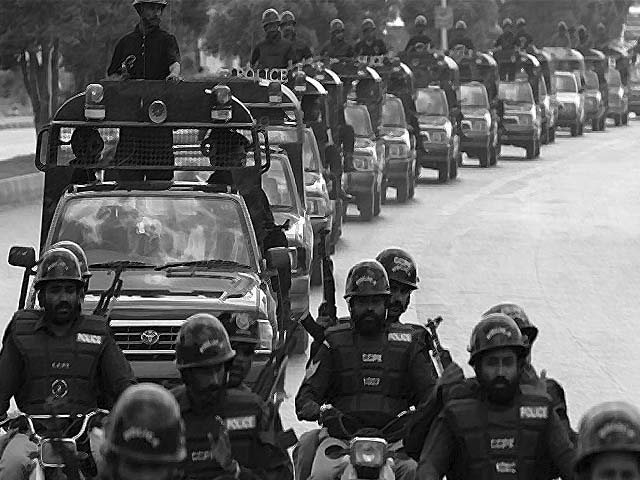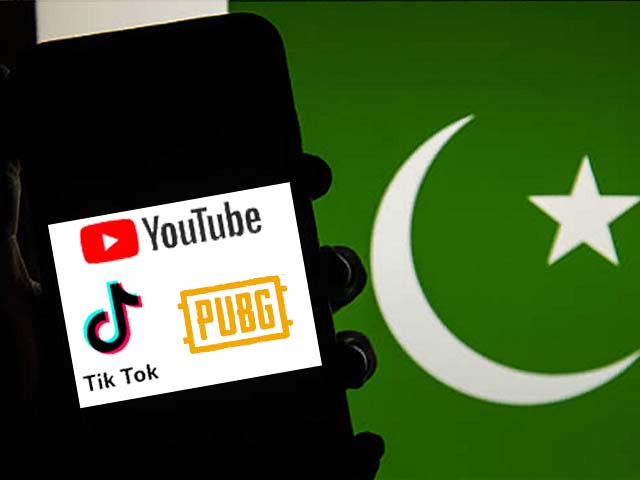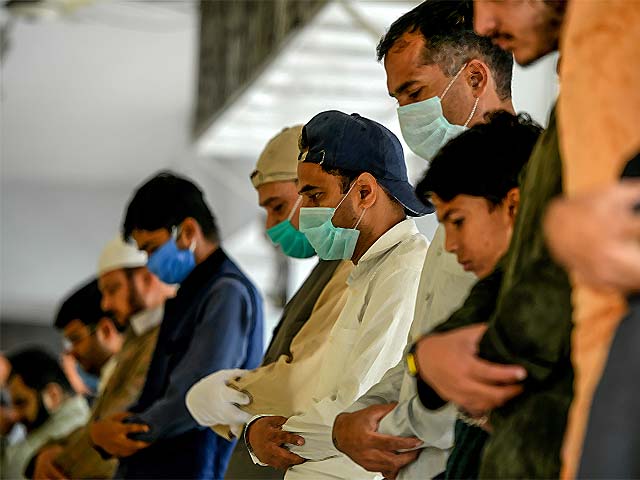
The Prado effect
The man lay in a pool of blood. Kamil reached into his breast pocket and pulled out a thick wad of cash.
Adam’s story
I backed out of the driveway, closely monitoring the environment around me. This was the first time I was driving such a large vehicle and it was safe to assume that there was a very steep learning curve with regards to keeping the jeep on the road.
“I need to pick up something for Natasha.” Amir squeaked from the backseat.
There were around five people sitting atop each other.
I nodded, glancing towards the road ahead before putting the jeep in gear. A slight tap on the accelerator and the monstrous engine roared to life, launching the vehicle onto the road. Sitting behind the wheel of such a large and impressive vehicle gives one a sense of security and superiority. Everyone swerved out of the way on seeing the Prado, and I easily drove through the morning traffic while watching cars, motorcycles and rickshaws dance out of my path.
“God, everything is so dirty. Look at that!” said Amir, pointing to the right side of the road where a huge pile of trash lay ablaze.
I, too, was surprised to see the rubbish being consumed by fire. I had seen a fair number of strange things since I had arrived in Pakistan but this was a first.
It is sad and ironic that bizarre things happen in Pakistan on a daily basis and they are considered totally normal. If these things were to happen abroad, these ‘normal’ things have the capacity to stop an entire country. If such a pile of trash was on fire in Chicago, it would definitely make headlines as fire-fighters would attempt to control the fire.
“Pull over, I think I can get it from here,” said Amir, ushering towards a series of mismatched shops amidst a residential block.
I complied, stopping the car in front of the shops. Amir began to make a fuss over his departure and insisted that he be accompanied by everyone.
“How about you guys get off and we’ll circle the block twice. We’re kind of stopping the traffic,” Kamil said, angrily.
Having reached a consensus and hearing the sound of all the doors shut, I once again pulled the car back on the road and eased the blocked flow of traffic. Kamil attempted to start the music system, resentfully muttering about Amir’s delinquency. Absent-mindedly, I forgot my turn and continued onwards towards the main market.
“Just take the next left; otherwise the traffic will get blocked again,” said Kamil.
I was just about to reply when an explosive outbreak of trance music enveloped us. Kamil sat back with his eyes closed, thoroughly enjoying the sensation of having his clothes vibrate because of the loud music.
This was bad. I was about to make the turn and I could not focus on the road with such loud music. I tried yelling at Kamil to turn down the music but all my efforts were for naught. As a last resort, I divided and averted some attention to the uncooperative stereo system. Turning the dial, which I assumed was the volume, just ended up increasing the bass. To my utter annoyance, Kamil welcomed the change by bobbing his head up and down to the beat of the music.
As soon as I returned my attention back to the road before planning another attempt to turn off the music, I saw the speedometer that marked 60 kilometres per hour. From the top of my peripheral vision, I saw a young man cross the turning, oblivious to the two ton vehicle with which he was on a collision course.
I don’t know what happened. In the split second of pure chaotic panic, I slammed the gas, thinking it was the brake. The car slammed into the man, sending him flying to the side. As soon as contact was made with the man, my feet froze, unwilling to move. I could not believe that I had hit somebody at such a speed. I merely sat there, with my vision fixed, while Kamil yelled incoherently.
As my senses returned, my feet scrambled to find the brake pedal. I don’t know whether it was instinct or just the result of shock, but my hands just made their own autonomous decision and swerved the steering wheel, ramming the side of the jeep into the railing which slowed it to a halt.
The music was still playing as time returned to its normal pace and we caught our breaths. I shut the engine, embracing the silence.
“What the hell did you just do?” asked Kamil, looking back to see a growing crowd around the body of the man our car had just plummeted into.
“Sh*t, sh*t, sh*t!” I swore.
I instinctively reached for the control panel on the side of my door and locked all doors. For some reason, I felt ashamed, not only for having potentially killed someone but for doing it in this particular vehicle. I had never felt so vulnerable; I felt as if there was an angry mob of people, ready to pounce and tear the car and its occupants apart.
“Let me handle this. Good thing the windows are tinted,” Kamil said calmly.
I expected him to move or verbally explain what will happen. However, nothing of the sort happened. He simple remained in his seat and adjusted the air-conditioning, while pulling out his cell phone to check the time. The windows were tinted but people began gathering around the front of the Prado, peering inside, as if they were at a zoo. Some began banging on the doors aggressively, demanding us to face the crowd.
“Shouldn’t we go out?”
“No, stay here. I am waiting for the cops to show up. Don’t look at the people. Ignore them.”
“Are you crazy? I don’t have a license or anything! They’ll jail me!”
“No they won’t. Just please stay quiet and let me do the talking.”
I wanted to leave the car and check on the man. I wanted to move. But I sat there, powerless in my seat.
A few silent and incredibly nervous minutes passed by in which Kamil kept an eye on the time and I avoided contact with the people staring at me and rocking the car. Only when the sirens were heard in the distance did the people move away. There was one man who seemed very eager to report the accident to the police, as he began to order others around and waited for the police to arrive on the scene.
The crowd that had formed around the car began to disperse and there was a short tapping noise on my window. The disciplined nature of the taps confirmed it was the police. On Kamil’s instructions, I rolled down my window to reveal a police officer standing behind.
“Sir gee, aap log theek hain? Kafi bura accident hua hay.” the officer asked.
(Sir, are you both alright? It was a very serious accident.)
My eyes widened. This man had the audacity to be concerned about our health when there was a man possibly dying right behind him. We may not have the spine to face the consequences of our own actions but I did not expect this from Lahore’s finest. I expected to be thrashed and jailed.
“Gee hum bilkul theek hain,” said Kamil, very slowly and coherently.
(Yes, we are completely fine.)
He was waiting for the officer to lead the conversation.
“Lekin aik banda shaid halak ho gaya hay. Iska case to banayga. Aap ko hamaray saath thaanay aana parhay ga.”
(But I think a man has died back there. We’ll have to report this case. You will have to come with us to the police station.)
My heart sank. This was it.
“Case bananay ki koi zaroorat hay sir?” Kamil asked, as if enquiring upon the price of a jacket in a shop.
(Do we really need to report a case about this sir?)
While he spoke, never breaking eye contact with the man, he pulled out his cell phone and began to fiddle with the keypad as he spoke to the officer.
The policeman eyed the cell phone for a split second before returning his gaze to Kamil and saying,
“Sir, ghareeb banda tha. Lekin hamari duty hay kay case banayain.”
(Sir, he was a poor man. But it is our duty to report the case.)
Kamil reached into his breast pocket and pulled out a thick wad of cash and began counting notes. I remained silent and utterly confused as I watched the officer greedily eye the cash. It was as if their eye contact led to a silent negotiation while they spoke.
Kamil handed the man a sizable chunk of the original wad. He handed the rest of the money to me as he diverted his attention to the police officer who was discretely counting the cash.
“Theek hay ab, sir?” Kamil asked.
(Is it alright now, sir?)
“Jee sir jee. Hum dekhlain gay. Aap jayiye.”
(Yes sir. We’ll handle it here. You can go.)
Kamil smiled and nodded, rolling up his windows. He then took the remaining cash from me, and began grinning.
“What just happened?” I asked.
My senses were returning but I could not quite breathe a sigh of relief.
“No jail. No problem. Just get us out of here as fast as you can. We don’t want to be seen here for a while now.”
I complied, restarting the engine. We grimaced as the side of the car screeched and made contact with the railing but soon enough we rejoined the traffic on the road. I tried looking at the man I had hit in the rear-view mirror but the crowd around him was too large to see anything.
Tahir’s story
There is a bit of time between the afternoon prayer and the evening prayer when Baji takes a nap. Since there is nobody to tend to, I find myself walking the busy streets around the house. Sometimes I even walk to the market and buy cigarettes if I so wish. Today was one of those days where I desperately wanted my fix but knew that I could simply get none until the start of the next month.
Walking towards the edge of the residential block, the bustling market was in sight. Something that I still have trouble dealing with is the large number of cars, vans, trucks, motorbikes, rickshaws, and horse-drawn carriages which occupy the streets at any given time.
The heavy traffic has indeed taken a toll on the roads themselves. Years of heavy usage had left most of the roads, even in affluent areas, cracked and worn from every angle imaginable. However, this is no obstacle for commuters as they know exactly where the potholes are and how to get themselves across.
At the crossing, I waited with some people at the roadside as the traffic began to thin out. As a villager, I never understood what these big-city people had to do in such a hurry that they could never wait for a few seconds here or there instead of running around like maniacs.
As we began crossing the road, a black jeep came lurching and screeching, hitting a man a few feet ahead of me. The man went flying into the air, falling across the road. The jeep drove off, briefly dipping off the road and sending dirt flying onto everyone behind it.
Instinctively, I ran towards the man who had been hit. Out of the corner of my peripheral view, I saw that the jeep had rammed itself into a railing and halted. The bloodied man lay on the road, motionless. Everyone grew closer to him but nobody would take the initiative and help the man. The crowd just discussed whether he will live or not, and resentfully muttering about the ‘nawab harami’ (spoiled brat).
It sickened and pained me to watch this man suffer. A few minutes passed after which the crowd dispersed and headed towards the driver of the jeep. Just a few people were left standing around the injured man.
I knew I could not do anything to help the man; only God could save him now. Whilst I prayed to God that an ambulance would arrive and save a life, sirens could be heard approaching. The mob, which had formed around the Prado, began to leave. I turned around, happily expecting an ambulance. My ecstatic smile was replaced with a frown as a police car could be seen driving past us and stopping behind the Prado.
The few people, who stood beside me, diverted their attention to the potential entertainment which the police may provide with the occupants of the vehicle that had hit this poor man. Blood had now begun to form a sizable puddle around the man’s head. I yelled for help but my plea fell on deaf ears.
One of the men from the crowd walked past me and said,
“Chor dey isse. Tu bhi phas jaye ga. Marnay day bacharay ko.”
(Let go of him. You’ll get into trouble as well. Let the poor man die.)
The coldness of his words stung me beyond belief. This is what people in the big city are: harsh, careerist and self-preserving scoundrels who have not the slightest of concerns for somebody else’s life.
“Inna Lillahi wa inna ilaihi raji’un”
I shut my eyes tightly and walked away, leaving the corpse of the man to rot in the blazing heat. The last thing I saw was a hand emerging from the Prado’s window, giving something to the police before driving off.
The police got the bribe, but the ambulance never came.
The ambulance never came.




COMMENTS (25)
Comments are moderated and generally will be posted if they are on-topic and not abusive.
For more information, please see our Comments FAQ